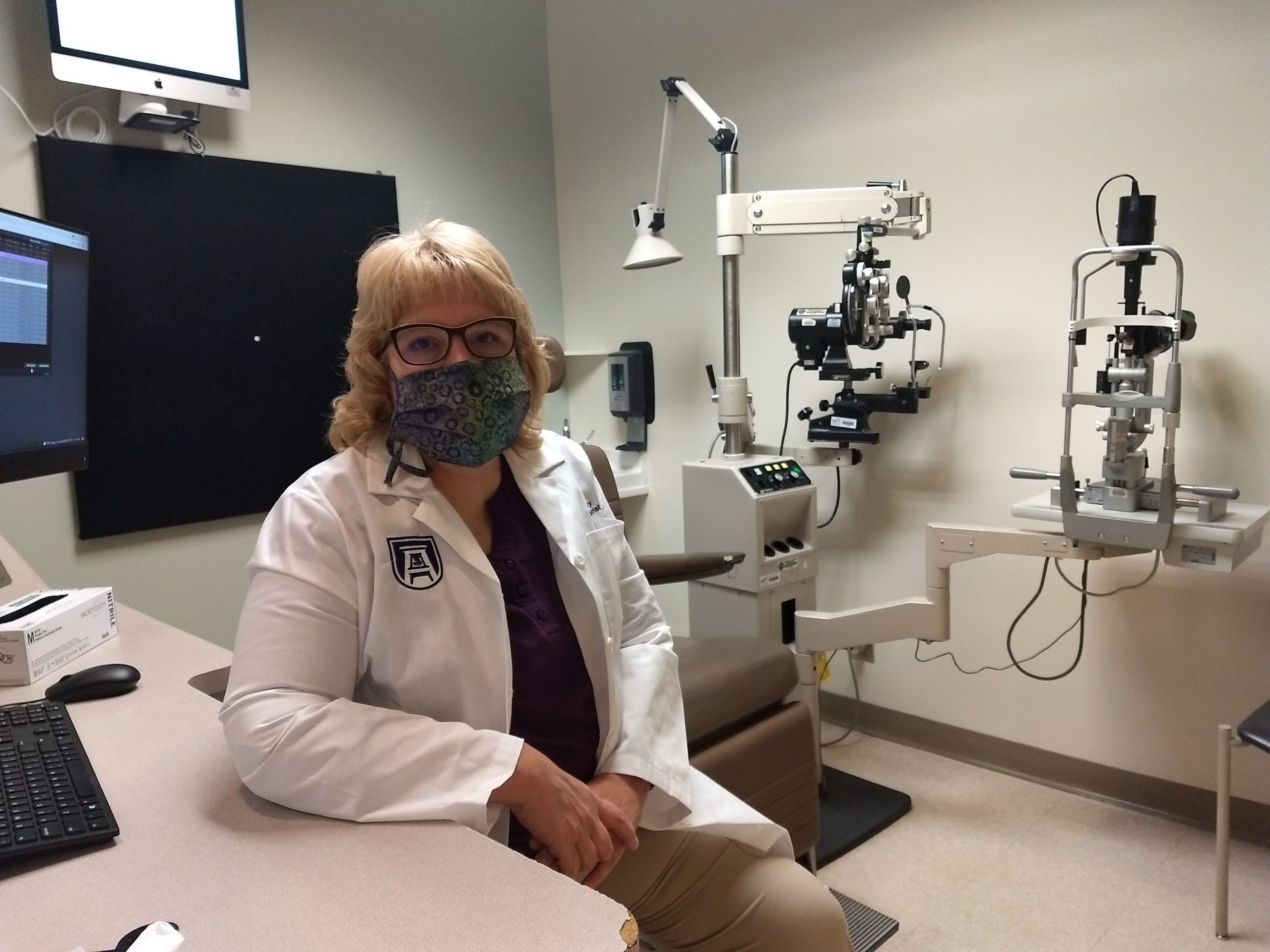People living with diabetes face several potential complications, not the least of which is losing their eyesight. Physicians at a new Augusta University Heath diabetes eye care clinic at want to head off silent problems before they become big problems.
Dr. Steven Brooks, chair of the Department of Ophthalmology at the Medical College of Georgia and AU Health, said many diabetics use their primary care physicians to have their eyes screened. A photo would be taken and sent to an ophthalmologist for a reading. Often, the photographs were too blurry to determine the condition of the patient’s eyes accurately.
MORE: South Carolina Health Officials Celebrate Pfizer’s FDA Approval
“We just wanted to give a point of access for patients to get in, get high-quality screening exams not only for their eye disease but also for glaucoma and cataracts and other things that patients at risk might not be aware of,” Brooks explained. “The eye is one of those things we can look at directly and visualize the blood vessels without having to use any kind of other testing. Once someone has been diabetic for 10 or more years, the risk starts to go up that they’re going to have complications with their eyes.”
Joining him in the clinic are Dr. Diego Espinosa, associate professor of ophthalmology, and Dr. Mary Sezer, an optometry specialist.
[adrotate banner=”19″]
Espinosa said, “We’ve always had diabetic retinal eye care. A new thing we’re doing is creating a screening program to be able to facilitate access to this vital type of testing for people with diabetes who can go blind.”
Sezer does the screenings. If she detects anything that needs to be checked, she sends the patient to the appropriate specialist or surgeon.
“I’m not a surgeon, so I’m in the ideal position to do the primary care exam and screening in order to filter it to the proper specialty clinics. If everything’s looking good, we can just have them come back yearly,” she said.
MORE: Augusta’s Oldest Hospital Closer to Merging with a Major Healthcare Provider
The doctors recommend people with type one and type two diabetes get regular eye exams as soon as they’re diagnosed, at least once a year or even more frequently.
The new eye clinic is working in partnership with the AU Diabetes Care Center. AU’s primary care physicians, endocrinology and pediatrics have been apprised of the new clinic so they can refer patients.
Patients interested in making an appointment for the new diabetic eye care clinic can call the AU ophthalmology hotline at 706-721-2020.
Dana Lynn McIntyre is a Staff Reporter with The Augusta Press. You can reach her at dana@theaugustapress.com.
[adrotate banner=”15″]










